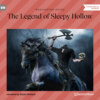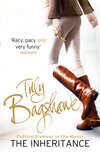Kitabı oku: «The Phoenix», sayfa 4
CHAPTER THREE
Gary Larson crossed his fat thighs and leaned back in his chair, a pained expression on his face.
‘I’m sorry, Ella. But I’m going to have to let you go.’
Gary had landed the job of CEO at Biogen Medical Research two years ago by default when his friend Marti Gruber, the original CEO and founder, died in a freak snowboard accident in Tahoe. Everybody had loved Marti, the archetypal go-getting millennial entrepreneur with a passion for risk and pushing boundaries. Nobody loved Gary, his lecherous, talentless best friend and business partner, who had ridden Marti’s coat-tails to success, Ringo-style, ever since High School. But fortune, it seemed, didn’t always favor the bold. Sometimes it favored the fat, entitled and cowardly, leaving the bold to suffocate under six hundred tons of unexpectedly unstable snow.
‘These unexplained absences of yours have become a habit, and one BMR can’t afford,’ Gary told Ella pompously. It was over a week since Mimi’s funeral, but this was the first day Ella had felt well enough to return to work at her boring, number-crunching job in the statistics division.
‘OK,’ she said calmly, standing up to go.
Gary Larson frowned. ‘Wait!’ he called after her. It was infuriating the way that Ella Praeger seemed immune to his authority. Even now, when he was firing her ass, the bitch wouldn’t do him the courtesy of showing any emotion. He’d secretly hoped for tears, perhaps even some pleading. He’d imagined Ella on her knees, her strangely beautiful face turned up to his in desperation. ‘Please, Mr Larson. I need this job. I’ll do anything!’ But instead she was walking away and out of his life with no more concern than someone who’d just been told about a minor change to their bus timetable.
‘Please, take a seat.’ He gestured magnanimously to the chair Ella had just vacated. ‘This isn’t personal, you know. I’ve always liked you.’
‘I know,’ said Ella, still standing.
Gary softened. Perhaps he was being too hasty, letting Ella Praeger go? She was an oddball, certainly, and not popular with her colleagues. But she was a brilliant statistician and a hard worker when she deigned to show up. And then of course there was that body …
‘You wanted to sleep with me from the day I joined.’
‘I beg your pardon?’ Gary flushed.
‘My first day here, you put your hands on my buttocks in the elevator,’ said Ella, mimicking the action with her hands.
‘I have no memory of that!’ Gary spluttered.
‘I do,’ Ella said calmly. ‘Also, when I ate in the canteen you used to sit next to me and touch my legs with yours.’
‘Ella, I assure you …’
‘You also made repeated positive observations about my appearance,’ Ella went on, ‘which is another well-known indicator of sexual attraction.’
The CEO’s face went from pink to red to puce.
‘Now listen, Ella, there’s no need for this to get ugly.’
Ella looked perplexed. Why would it get ugly?
‘You’re throwing around some pretty wild accusations there. I’m sorry if you misinterpreted some of my friendly overtures towards you, as your boss …’
‘No need to apologize,’ said Ella, her tone still maddeningly neutral. ‘I didn’t misinterpret them. I just ignored them because I didn’t find you attractive. Goodbye.’
Gary opened his mouth to say something, then closed it again, like a dying fish on a line. Was she threatening him? Or insulting him? Or was this just Ella Praeger being her usual, baffling, socially awkward self?
She walked out of his office and this time Gary Larson let her go. As soon as she left he loosened his tie, which felt horribly tight all of a sudden, and picked up the phone to HR.
‘Make sure Ella Praeger gets a generous severance package,’ he barked. ‘And when she takes it, have her sign a rider to waive any future claims against the company.’
‘Of course, sir. And when you say “generous” …?’
‘Give her whatever she wants,’ Gary blurted. ‘Just get rid of her.’
Noriko Adachi sipped her iced water as she listened intently to the man sitting across the table from her.
His call last night had been unexpected, but welcome. Professor Adachi still had no idea how this total stranger knew she was in New York, never mind the hotel where she was staying, her room number, and precise details of her itinerary. The seminar on early nineteenth-century feminist literature at NYU was hardly a well-publicized event, especially for those outside the academic world. And yet this polished, erudite American businessman, Mark Redmayne – a billionaire according to Google – seemed to know all there was to know about her.
In other circumstances Noriko would have shut him down immediately. She didn’t appreciate being stalked. But as soon as she heard the word ‘Petridis’, he had her undivided attention.
‘My condolences for your loss, Professor,’ Redmayne began, the moment Noriko sat down at their corner table at The Finch in Brooklyn. ‘From what we hear, your son Akiko was a fine young man.’
‘Thank you. He was.’
It was odd the way he used ‘we’ instead of ‘I’. He’d done the same thing last night on the phone. Noriko wondered who else he was speaking for.
‘Fifteen years ago, wasn’t it?’
‘That’s right.’ Despite herself she felt the tears welling in her eyes. It was so long since anyone had talked to her about Kiko. Hearing his name brought it all back.
‘But it feels like yesterday?’
‘Yes,’ Noriko cleared her throat. ‘It’s been hard to lay him to rest knowing his killers were never brought to justice. Worse than that, they were praised. Adored by the world.’ A muscle began to twitch in her jaw. She twisted her napkin violently between her fingers, as if it were a chicken and she were trying to wring its neck.
‘I understand, believe me,’ said Redmayne. ‘My Group – the organization I run – have been on to the Petridises for years. Decades. Oh, we tried to get the authorities to investigate. Governments, international agencies, local police forces. But no one took us seriously. In the end, we were forced to take matters into our own hands.’
Noriko listened, enthralled. ‘What do you mean “take matters into your own hands”?’ She paused for a moment, her clever mind racing to catch up as she answered her own question. ‘The helicopter crash?’ She lowered her voice to a whisper. ‘That was you?’
Redmayne nodded. ‘That was us.’
As their food arrived, he described his ‘Group’ to Noriko, albeit in very vague, shadowy terms. From what she could tell they appeared to be some sort of secret, vigilante society – a slick, well-funded one, if Mark Redmayne’s credentials were anything to go by – targeting criminals that the police or politicians either couldn’t or wouldn’t bring to justice. Perhaps she should have listened in more detail, but her brain was still stuck on the Petridises. At long last she had met someone who not only believed her about Kiko and the destruction that Spyros and Athena had wrought, but who had actually done something about it! It was intoxicating.
‘I read your article. The one Newsweek wouldn’t run,’ Redmayne told her. ‘You were right about so much. I can feel your pain vibrating off the page.’
‘Yes. Those were dark times,’ admitted Noriko, too caught up in the moment to ask him how he’d found and read an article that had never been published. ‘After the crash, things were better for a while. I started to let go. But then …’
‘But then this. Right?’ Mark Redmayne slid a high-resolution copy of the picture of the drowned migrant boy across the table. The ‘L’ on his foot was clearly visible.
Noriko bit her lip and pinched the bridge of her nose, determined not to cry again.
‘Yes.’
‘I can’t imagine how painful it must have been for you to see that,’ said Redmayne.
Noriko looked away, at the busy street outside the window. ‘She’s alive,’ she whispered.
‘It would seem that way,’ Redmayne concurred.
‘How? How could she have survived that crash?’
‘We don’t know,’ he answered truthfully. ‘There’s a lot we don’t know at this point. But we intend to find out. And if Athena Petridis is alive, we will bring her to justice. You have my word on that.’
Noriko looked up sharply. ‘Are you looking for justice? Or vengeance?’
‘Is there a difference?’ Redmayne cocked his head to one side. ‘We can call it vengeance, I suppose. Righteous vengeance.’
For a while both of them fell silent. After a full minute, Redmayne began to wonder whether he’d done enough. But then Professor Noriko Adachi turned to him and uttered the words he’d been waiting to hear.
‘I want to help, Mr Redmayne. Please – tell me more about your Group.’
Back in San Francisco, Ella’s anxiety was building. In reality she felt a lot less sanguine about losing her job at Biogen than she’d let on to her now ex-boss. Walking home to her tiny apartment on Fillmore Street after their interview, she struggled to contain a rising sense of panic. What now?
After a week spent in and out of doctors’ offices by day, getting second, third and fourth opinions after her collapse at the cabin (all depressingly the same – ‘there’s nothing physically wrong with you, Ms Praeger’; ‘there may be a psychological trigger’), and in her apartment by night, reading and re-reading all her father’s letters to her grandmother and herself, Ella was emotionally and physically exhausted.
True, her medical research job was boring, and Gary’s clumsy come-ons a daily irritant. And true, the money wasn’t great. But Ella’s job had provided routine and stability, something tangible to hold on to. She needed that now more than ever. The events of the last three weeks had thrown her for a total loop – Mimi’s death, going back to the ranch for the funeral, finding the letters, all on top of the intolerable situation with her headaches.
Bob from the coffee shop had helped her try to make sense of the letters at least.
‘I wouldn’t jump to conclusions,’ he advised her. ‘You don’t know what your grandmother’s motives might have been for keeping the truth from you. There are a lot of missing pieces here.’
Ella looked at him with anguish. ‘It’s not just Mimi. If my parents were alive, why didn’t they come back for me?’
Bob hugged her. For someone so abrasive, and downright rude at times, Ella could be deeply sensitive, almost like a child.
‘I don’t know, sweetheart.’
‘How could they leave me there, for ever? And why did they stop writing? The last letter was sent the year I turned eight. Do you think they stopped because I never replied? Do you think they thought I didn’t love them?’
‘No,’ Bob said fiercely. ‘I’m sure they didn’t think that. Look at your dad’s letters to your grandmother. He knew she was the one keeping their letters from you. He knew that she’d lied to you about the car crash.’
‘And why was he the only one who wrote?’ Ella asked angrily. ‘What about my mother? Where was she all those years? Where is she now?’
‘Look,’ said Bob. ‘These are all good questions. But the only way you’re going to know anything is by finding out the truth for yourself. It seems to me the first thing you need to know is whether they’re still alive.’
Bob had been so kind, as usual, and so practical. Ella wished she had his facility for breaking problems down into manageable parts. And he was right – she did have to take charge and discover the truth for herself, somehow. But something held her back. In her more honest moments, she realized that the ‘something’ was fear.
Tapping the code into the panel outside her building, Ella slipped inside and climbed the creaky three flights of stairs to her attic apartment. Once inside she removed her shoes and placed them exactly symmetrically against the wall, as was her ritual. In front of her, the living-room-cum-kitchen was just as she had left it a few hours ago: neat, ordered and Spartan. The white Formica table gleamed like something out of a pathologist’s lab, an impression only enhanced by the pervasive smell of bleach countertop cleaner. A single, bright red armchair faced the television, also dusted to within an inch of its life, with the only other furniture in the room a functional Ikea bookcase, on which a variety of novels and self-help books were stacked in strict, color-coded order.
It’s eleven o’clock on a Monday morning, Ella thought, shifting her weight awkwardly from foot to foot as her panic returned with a vengeance. What do I do now? Growing up on the ranch there was always a job to be done, and a time for everything. In the city it was different. There were no guns to clean or rabbits to skin or fences to mend. To fill the days, one needed a job. A made-up purpose. Up until today Ella had had one. But now the terrifying prospect loomed of ‘free time’; of long, structureless hours in which the voices in her head would be free to run rampant. They were already playing now, on low volume. A male voice had started reciting strings of numbers the moment Ella walked into the building. Maybe the doctors are right? Maybe it is stress related?
Moving aimlessly through to her bedroom, Ella sat at her desk and flipped open her computer, resisting the urge to open the drawer containing her father’s letters. Last night she’d spent more than three hours obsessively studying the postmarks on all the envelopes Mimi had saved. The letters had come from all over the globe: Pakistan, Greece, South Africa, Fiji. My parents explored the world together, knowing I was stuck in that cabin, completely isolated, grieving a death that had never happened. In the beginning, Ella had taken her father’s side, blaming her grandmother entirely for the ‘cruel lie’ she’d been weaned on. But as the days passed she couldn’t avoid the harsh truth that her parents had also been complicit. They knew where I was. And they never came back.
What Ella had to do now, and urgently, was to find another job. She couldn’t allow the letters to consume her, not until her own life had stabilized. Scrolling through the positions listed on monster.com and the Berkeley alumni website, her heart sank. Even for the desk-bound, research or coding jobs, employers wanted ‘outgoing’, ‘charismatic’ staff with ‘proven people skills’. Ella’s academic credentials were stellar and she was always invited to interview. But that was where things inevitably went wrong.
‘Tell us why you want to work for Humperfloop Industries?’ the bright-eyed HR team would ask her.
‘To earn money,’ Ella would reply truthfully. This usually prompted laughter, but then that would be followed by other, trickier questions.
‘What are your passions?’ a middle-aged female interviewer at a tech start-up once asked Ella. ‘Apart from coding.’
‘Apart from coding?’
‘Yes,’ the woman smiled. ‘We’re looking for well-rounded individuals. People with more than one string to their bow.’
Ella’s palms began sweating. All the responses she’d practiced were about coding. What sort of ‘passions’ did the woman mean? Bob had warned Ella vociferously never, ever to mention sex in these encounters. But what did that leave her with?
‘I like … coffee cake,’ she said at last.
The woman looked blank. ‘Coffee cake?’
‘I can shoot a deer from three hundred yards,’ Ella blurted. The interviewer’s horrified face told Ella at once that she’d made a misstep, yet some death-wish prompted her to follow up with: ‘I can gut fish!’
‘Very interesting. Well, thank you, Miss Praeger. Please, see yourself out.’
Landing the Biogen job a year ago had been nothing short of a miracle. Ella was pretty sure she’d only got that because Gary Larson fancied her. But now she’d lost it, thanks in part to her stupid headaches, which weren’t getting any better and would probably ruin her chances at her next job, if she ever got one.
Don’t be negative, she told herself. Healthy people turn their lemons into lemonade.
This time she would do better. She would follow Bob’s example and break the problem down into small steps. Step One: get better at interviews.
Standing up, she positioned herself stiffly in front of the mirror. Many people had told her that ‘tone of voice’ was important, as well as body language and eye contact.
‘A pleasure to meet you!’ Ella grinned at her reflection, proffering her right hand. ‘I’m Ella Praeger.’
Hmm. No, Too gushing.
‘How do you do?’ she tried again. ‘I’m Ella.’
This time her smile looked like a rigor-mortis grimace.
‘Thank you for seeing me,’ she told the mirror, relaxing her jaw and tossing back her hair in what she hoped was a relaxed and natural manner. ‘I’m Ella.’
‘The pleasure’s all mine, Ella.’
Ella spun around and screamed. Standing behind her, leaning nonchalantly against her bedroom door as if he had a perfect right to be there, and grinning like the Cheshire cat, was the man from her grandmother’s funeral.
CHAPTER FOUR
‘Get out!’
Picking up a hairbrush from her perfectly arranged dressing table, Ella hurled it at the man’s handsome head. He was even more attractive than she remembered him from the ranch, but this was no time to get distracted. The throw was accurate and lightning fast, hitting him painfully on the side of the skull.
‘What did you do that for?’ The man scowled at her.
‘You broke into my apartment,’ Ella retorted, reaching for a heavy-looking glass perfume bottle.
‘Don’t!’ the man begged, covering his head protectively with his arms. ‘I didn’t break in to your apartment. The door was open.’
Ella’s eyes narrowed. ‘I always close the door behind me.’
‘Not this time,’ shrugged the man.
‘Who are you?’ Ella demanded, still clutching the scent bottle.
‘That’s not important,’ said the man, his earlier confidence returning even as he rubbed the growing lump on his skull, already the size of a walnut.
‘It’s important to me. Why are you here?’ said Ella. ‘And why were you at my grandmother’s service?’
‘Put down that bottle and I’ll tell you.’
The man smiled, and for the first time Ella allowed herself to take a really good look at his face. She’d already clocked him as attractive, but she saw now that his defining feature was his jaw. Strong and perhaps a little too wide, it gave him a rough, rugged look at odds with his otherwise sophisticated manner and dress. He had brown eyes, surrounded by fans of deep lines that marked him as older than Ella had thought at the funeral service. Forty, at a guess, but in good shape for his age and with no hints of gray at the edges of his thick, dark hair. He was wearing a suit again today, well cut and expensive, with gold cufflinks that glinted when he raised his arms to shield himself from Ella’s impending blows.
While Ella looked at him, he returned the compliment, his gaze trailing languidly up and down Ella’s body in a most disconcerting manner. The look in his eyes was part curious, part predatory. Ella felt an instinctive rush of blood to her groin. She gripped the perfume bottle tighter.
‘Tell me, right now, who you are and why you’re following me or I’ll call the police and have you arrested for trespassing.’
‘No you won’t.’ The man turned and walked into Ella’s living room, sitting down at the table and stretching out his legs with a maddening lack of concern. If he’d had a cigarette, he would have lit it.
‘I might,’ Ella protested weakly, unsure how she’d somehow lost the upper hand in their interaction. ‘Or for harassment.’
‘No one’s harassing you, Ella.’ It was the first time he’d used her name. ‘Sit down.’ He gestured to the chair opposite him, as if this were his apartment, not hers. Ella contemplated refusing, but then decided it would look weak and churlish. Besides, now that the shock at being ambushed had passed, she felt more intrigued than threatened. Putting down the bottle she joined him at the table.
‘Good.’ He smiled again, flashing his white teeth like a wolf. ‘Now, I believe you had some questions for me?’
‘Why were you at Mimi’s funeral?’ Ella began.
‘To see you.’
‘But you didn’t see me. You didn’t introduce yourself. You left before I could speak to you.’
‘I saw what I needed to see.’
Ella scowled. She’d never been a fan of riddles.
‘What does that mean? What do you want from me?’ Her exasperation was starting to show. ‘You show up at my grandmother’s funeral, uninvited. Then you walk into my home, unannounced, and actually at a really bad time. I lost my job this morning.’
The man shrugged, showing zero interest in this information, never mind sympathy.
Christ, he’s rude, thought Ella. Of all the obnoxious, self-centered …
‘You would have had to leave your job anyway,’ he said matter-of-factly. ‘You’re going to be working for us from now on, Ella.’
Ella raised an eyebrow. ‘Oh I am, am I? And who exactly is “Us”?’
The man leaned forward, suddenly animated. ‘The organization I represent is a secret but powerful group. We work as a force for justice around the globe.’
Ella stifled the urge to laugh. What was this, a comic book? Next he’d be telling her that they all wore capes and lived in Bat-caves. But when he spoke again he sounded deadly serious.
‘There are things I can explain to you today. Other things will become clear over time. Once you start your training.’
Training? For the first time it occurred to Ella that perhaps this good-looking stranger was actually unhinged. Some sort of paranoid schizophrenic who’d seen her on the street or in the coffee shop and decided to stalk her. First to Mimi’s funeral and now here, at her home. Perhaps she ought to be concerned for her safety?
‘Listen, I’m sorry,’ she said, getting up and walking, calmly, to the front door of the apartment. ‘I’m sure you mean well, but I think you must have me confused with someone else. I’m not going to be doing any “training” or joining any group. I have an ordinary life. I work in an office.’
‘I thought you said you were fired?’
Wow, thought Ella, frowning. He has even worse social skills than I do.
‘Well, yes. I was fired. But that’s not the point. The point is I need you to leave now.’
She held open the door. The man didn’t move.
‘Please go.’ Nothing.
‘I’m serious.’ Ella’s tone hardened. ‘If you don’t leave, I’ll—’
‘Your parents, William and Rachel Praeger, were both important members of The Group,’ the man said, without looking up from the table. ‘They devoted their lives to the cause.’
Ella froze. ‘You knew my parents?’
‘Not personally,’ the man said. ‘I knew of them, naturally. They were legendary in their time. Everyone in The Group knows about the Praegers.’
Ella closed the door. Her heart was beating so fast it was hard to breathe.
She looked at the man. ‘You used the past tense. They “were” legendary.’
‘Yes.’
‘So … my parents are dead?’
‘Yes.’
There was no soft-soaping. No ‘I’m so sorry’ or ‘I thought you knew’. He answered her as bluntly as if she’d asked him the time, or some trivia question. Tactless. Like me, Ella thought again. Not that their similarities eased the blow.
Leaning back against the wall, she fought to steady her breathing. All her life, up until ten days ago, she’d believed her parents were dead, killed in a car crash when she was very young. But since finding the stack of letters hidden in Mimi’s ceiling, she’d been living on hope. Angry hope. Confused hope. But hope nonetheless. That perhaps, miraculously, it wasn’t too late. That one day she would see her mother and father again and they would explain everything. Make everything all right.
But now, with a single word, this stranger, this bizarre, arrogant, handsome man had extinguished that hope, like a priest at the end of Mass, casually snuffing out a candle.
‘Are you sure they’re dead?’ Ella whispered.
‘Quite sure,’ said the man. ‘They died on a mission for us in 2001.’
Two thousand and one. That was the year the letters had stopped.
‘I believe you were eight years old at the time,’ the man said.
‘What sort of “mission”?’ asked Ella. It didn’t occur to her to wonder how he knew her age, or indeed anything about her. ‘Are you trying to tell me that my parents were spies?’
He shrugged. ‘We prefer the term “agents”.’
‘How did they die?’ demanded Ella, who didn’t give a damn what terms the man preferred.
He hesitated for the briefest of moments, then said, ‘They were murdered.’
Ella swallowed hard.
Murdered.
For a few seconds she was left mute. ‘How?’
The man held up a hand. ‘I can’t say any more, I’m afraid. Not yet. But you should know that your parents were both tremendously brave people, Ella. They did their best to protect you, to allow you to enjoy a safe and happy childhood.’
Safe and happy? thought Ella, bitterly. Those were hardly the words she would have chosen to describe life up at the cabin with Mimi.
‘I want to know how they were killed, and why.’
‘And you will,’ said the man. ‘When you’re ready. It was always your parents’ wish that one day you would join us. Carry on their legacy.’
The man continued talking, about ‘The Group’ and ‘missions’ and ‘training’, but Ella had tuned out. She didn’t care about whatever cult it was that he was trying to persuade her to join. All she cared about was that this man knew things about her mother and father. Real things. Specific things. For the first time in Ella’s life, someone was offering her answers – actual, factual answers, not the stream of lies and half-truths and platitudes she’d been fed by her grandmother, well intentioned or not.
‘What else do you know about my parents?’ she interrupted him, reclaiming her place opposite him at the table. ‘You said you never met them.’
‘No.’
‘But other people in your group did?’
‘There are people still in The Group who would have known them, yes,’ the man answered cautiously.
‘Who? Can I talk to them?’
‘I can’t give you names at this stage, I’m afraid.’
‘What do you mean “at this stage”?’ said Ella, growing more strident. ‘And why can’t you? They were my parents. I have a right to know.’
‘As I explained, once you start training for your first mission, you’ll be briefed more fully,’ the man said calmly.
Ella rubbed her temples. This entire conversation had been surreal from the beginning, but all this talk of ‘training’ and ‘missions’ was going too far. She wasn’t about to join this weirdo’s cult, still less volunteer for any sort of ‘special ops’. Whatever number these people had pulled on her parents’ back in the day wasn’t going to work on her. She wasn’t Lara Croft. She was an unemployed statistician with questionable social skills and some sort of undiagnosed mental disorder that made her feel as if hundreds of little men with pickaxes were permanently mining the inside of her cranium, day in, day out. Most of the time it was a ‘mission’ for Ella just to get through the day.
Wearily, she pressed her splayed fingers to the side of her skull.
‘Your training will help you with the headaches you’ve been experiencing,’ the man said nonchalantly. ‘As well as with the other side effects of your … gifts.’ He chose the word carefully, turning it over in his mind, like a squirrel trying to select a particular nut. ‘The nausea, hearing voices, all of that.’
Ella’s stomach lurched. How on earth did this complete stranger know about the voices in her head? She’d never told anyone about them, not even her useless doctors.
‘What do you mean my “gifts”?’ Her voice came out scratchy and strained. ‘How do you know these things about me?’
‘Here.’ The man reached into his inside jacket pocket and pulled out a silver USB memory stick that looked like an old-fashioned cigarette lighter. ‘Look at this after I’ve gone. It will give you more clarity on the details. You’re unique. But the important thing to understand is that there’s nothing wrong with you, Ella. Your brain was simply designed differently to other people’s.’
‘Brains aren’t “designed”,’ murmured Ella, gazing at the stick in her palm and talking as much to herself as to him.
‘Yours was,’ said the man. ‘In vitro. Your parents were pioneers in gene editing. As individual scientists they were each brilliant, but as a team they pushed boundaries that none of their contemporaries dared even approach.’
‘Wait.’ Ella held up a hand. ‘My parents were both doctors. Medical doctors.’
‘That is not accurate,’ said the man.
‘Yes it is accurate,’ insisted Ella, angrily. ‘My grandmother told me—’
‘Is this the same grandmother who told you that they’d died in a car crash?’ The man gave her a pitying look. ‘Surely you’ve realized by now, Ella, that your grandmother lied to you. Repeatedly. About many things.’
Ella bit her lip. She wanted him to be wrong, wanted to be able to leap to Mimi’s defense. But she couldn’t.
‘What I’m telling you now is the truth,’ said the man. ‘Whether you choose to believe it or not. Your parents were not doctors, they were research scientists. Your mother was a neurologist and your father a geneticist, and they were two of the most brilliant minds of their generation. You were their greatest achievement.’
Ella waited for him to go on.
‘The voices and messages you’ve been hearing aren’t auditory hallucinations. They’re all real,’ he explained. ‘They’re electronic signals – emails, texts, data and voice transmissions. You were genetically modified before birth to be able to receive and, theoretically at least, to unscramble them. We believe you have visual capabilities too, but we won’t know the full extent of your gifts until we get you into the lab. It’s really quite exciting,’ he added cheerfully.
Exciting? To be told that your own parents had conceived you as some sort of experiment? The words ‘genetically modified’ made Ella think of those perfectly round, red tomatoes that looked pretty on supermarket shelves but that tasted like tennis balls when you bit into them. Fake. Ruined.




















